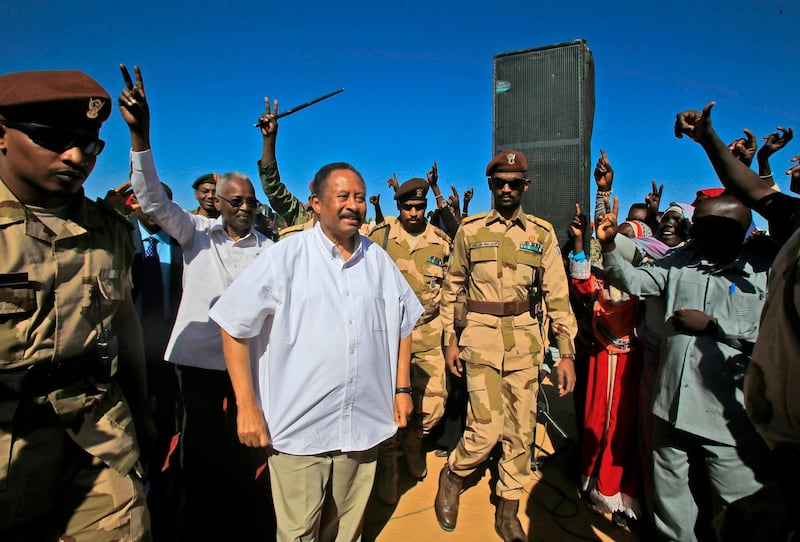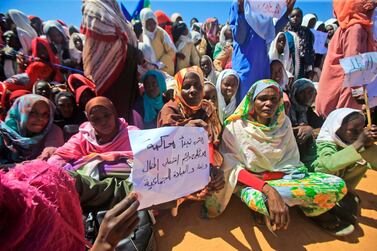Sporadic tribal clashes between Arabs and non-Arabs continued Tuesday in Sudan's West Darfur province, as the death toll increased to at least three dozen people, some of them burnt to death.
Some of the 36 dead were children and women, said a senior health official and a spokesman for a local aid group working in the area who spoke on condition of anonymity.
The official, who works in the main hospital in the province, said that around 60 others were wounded, and that 49 of them were taken to the capital, Khartoum, for treatment.
The clashes, which erupted at the weekend, pose a challenge to efforts by Sudan’s transitional government to end decades-long rebellions in areas like Darfur.
Rebel groups from Darfur have now suspended their peace talks with the government in response to the tribal clashes and called for an investigation.
Sudan is on a fragile path to democracy after a popular uprising led the military to overthrow longtime autocratic president Omar Al Bashir in April.
A military-civilian government now rules the country. One of its key priorities has been ending the insurgencies in Sudan's far-flung provinces in order to slash military spending, which takes up much of the national budget.
Adam Regal, a spokesman for a local organisation that helps run refugee camps in the area, said looting and destruction of property by militias took place in at least three refugee camps in the town of Genena.
He shared footage showing burnt properties, as well as graphic images of burnt bodies and wounded people. His group put the toll at 41 dead and more than 100 wounded.
Sudan's ruling Sovereign Council said Monday they would send "sufficient" troops to the region to help contain the clashes, which grew out of a skirmish between two people, one of whom, an Arab, was stabbed to death.
Activists and residents said the local government's nightly curfew was not being followed. Sporadic clashes in Genena were reported earlier Tuesday.
Two residents told The Associated Press that militias, mostly Arabs, roamed the streets in pickup trucks with mounted machine guns.
By Tuesday evening, the violence was subdued amid heavy presence of troops, enabling families to bury the dead and take the wounded to hospitals. The residents spoke on condition of anonymity for fear of reprisals.
Mr Regal accused Sudan’s paramilitary Rapid Support Forces of intervening in the fighting on the side of the Arab forces.
Gen Mohamed Dagalo, deputy head of the Sovereign Council, commands the paramilitary group, which grew out of the notorious Janjaweed militias.
Rights groups say the RSF had, over the last decade, burnt villages and raped and killed civilians during a series of counterinsurgency campaigns.
The Sudanese government and a rebel faction signed a peace deal last week. It was hoped that that deal could pave the way for peace agreements with more rebel groups.






